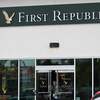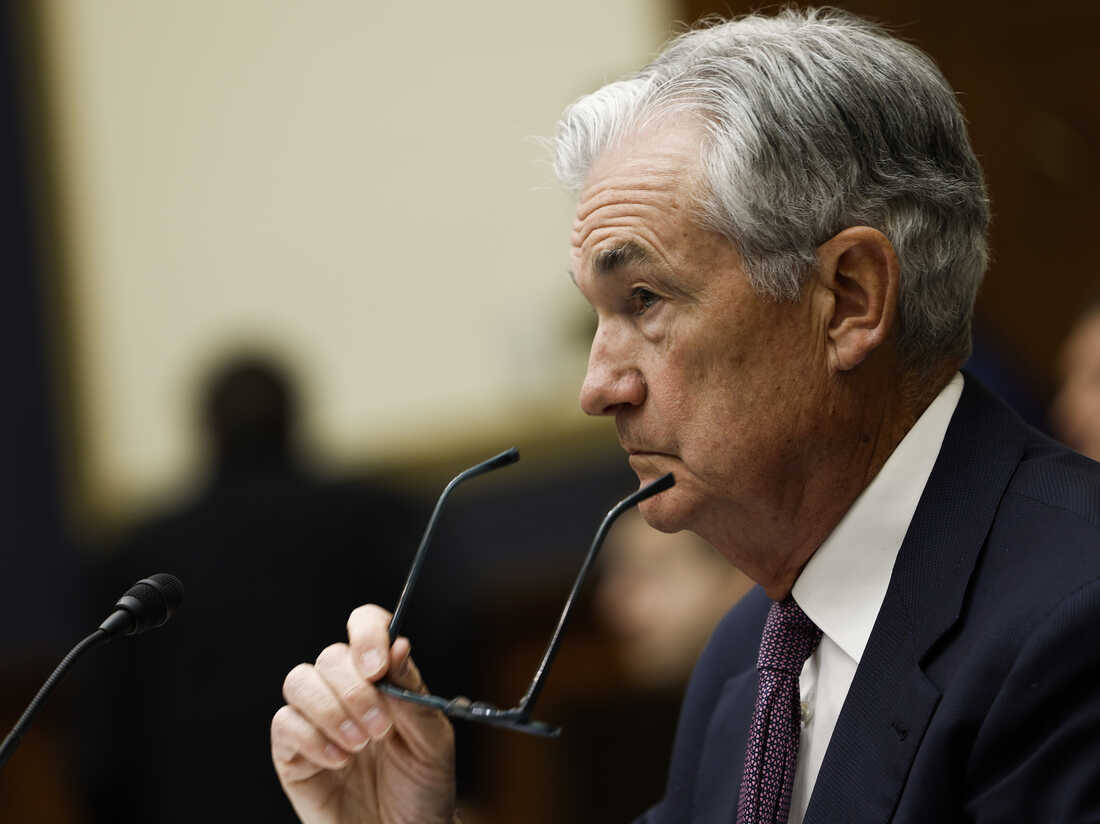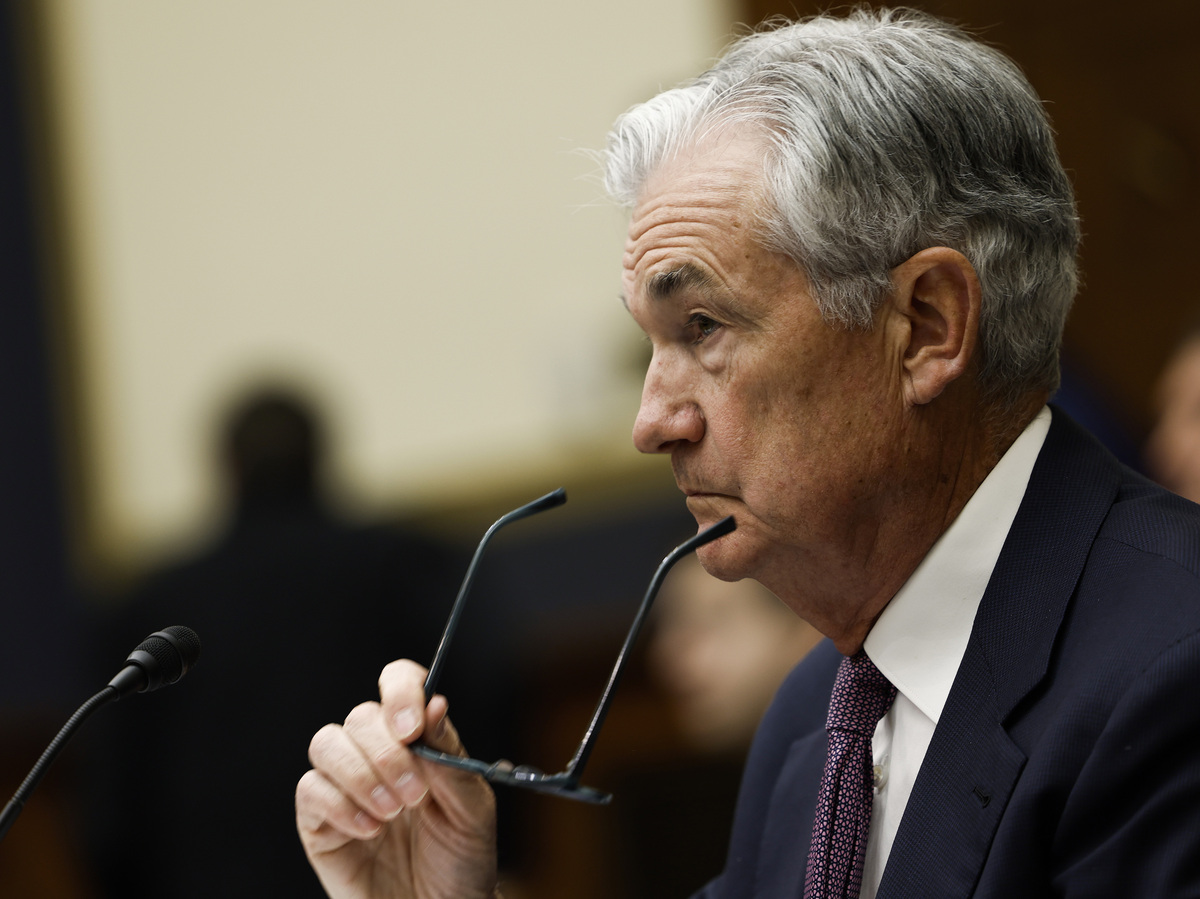On March 16, 2023, First Republic Bank was identified in front of one of the lender’s offices in Oakland, California. First Republic shares continued to fall on Monday amid concerns about its finances.
Justin Sullivan/Getty Images
Hide title
Change the title
Justin Sullivan/Getty Images

On March 16, 2023, First Republic Bank was identified in front of one of the lender’s offices in Oakland, California. First Republic shares continued to fall on Monday amid concerns about its finances.
Justin Sullivan/Getty Images
NEW YORK/BERLIN – Shares of First Republic Bank plunged more than 45% on Monday to hit another record low, extending recent declines as an emergency intervention by the world’s 11 biggest lenders last week left the central bank unsettled.
The California-based lender was downgraded for the second time this week by S&P Global, contributing to Monday’s decline. The First Republic was also attacked A report from The Wall Street Journal JP Morgan has been in touch with other major lenders about developing another rescue plan.
Among the possibilities being discussed is converting some of the $30 billion deposited in First Republic into shares in a group of 11 banks that would dilute the value of other shareholders’ shares.

JPMorgan declined to comment on the Journal report. Meanwhile, First Republic did not comment on the report but said the lender is “well positioned to manage short-term deposit activity”.
Despite the rescue deal announced last week, First Republic shares continued to sink as many customers moved their money elsewhere.
S&P Global says last week’s bailout is “not a long-term solution to the bank’s financial woes.”
Meanwhile, Ed Moya, a senior analyst at Onda, said Wall Street is still not very optimistic.
“Investors are skeptical that First Republic can attract any deposits, which will be a problem for small and medium-sized banks,” he wrote in a note to clients on Monday.

Federal Reserve Chairman Jerome Powell testifies before the House Committee on Financial Services on Capitol Hill in Washington, DC, March 8, 2023. The central bank meets this week for its policy meeting amid a volatile period in global banking.
Anna Moneymaker/Getty Images
Hide title
Change the title
Anna Moneymaker/Getty Images

Federal Reserve Chairman Jerome Powell testifies before the House Committee on Financial Services on Capitol Hill in Washington, DC, March 8, 2023. The central bank meets this week for its policy meeting amid a volatile period in global banking.
Anna Moneymaker/Getty Images
However, there are more regional lenders
But elsewhere there were signs of hope.
Shares of other regional banks have regained some of their lost ground, including Dallas-based Comerica and Cincinnati-headquartered Fifth Third Bancorp.
Meanwhile, New York Community Bancorp rose more than 30% after the Federal Deposit Insurance Corporation (FDIC) announced it had purchased Signature Bank’s assets. The FDIC took over as part of the government bailout.
The Dow Jones industrial average rose 1.2% and the S&P 500 rose 0.9%, with broader stock indexes also higher.
The overall gains should help calm some concerns about the stability of the banking system, as the Federal Reserve is set to begin a two-day meeting on Tuesday.
Markets are waiting to see how policymakers will respond to all the latest developments. The central bank is expected to raise interest rates by a quarter of a percentage point now that inflation is high — or hold them until there is more confidence in the stability of the financial system.
UPS takes over Credit Suisse
The recovery in US markets comes after a volatile weekend in global finance.
UBS Group took over troubled lender Credit Suisse for more than $3 billion in an all-stock transaction on Sunday, in a deal brokered by Switzerland’s government.
The deal wiped out about $17 billion worth of Credit Suisse debt for some investors, potentially destroying their investments.
Shares of Credit Suisse fell more than 50%, but UBS shares made modest gains after the initial decline.

Credit Suisse Bank’s sign and logo are seen at their headquarters in Zurich on March 20, 2023. Credit Suisse, the beleaguered lender caught in a global banking storm, was acquired by rival UBS on Sunday.
Fabrice Caffrini/AFP via Getty Images
Hide title
Change the title
Fabrice Caffrini/AFP via Getty Images

Credit Suisse Bank’s sign and logo are seen at their headquarters in Zurich on March 20, 2023. Credit Suisse, the beleaguered lender caught in a global banking storm, was acquired by rival UBS on Sunday.
Fabrice Caffrini/AFP via Getty Images
Clemens Feust, President of Germany’s Ifo Institute for Economic Research Swiss regulators should be commended for acting quickly and coming up with a tough solution that prevented a possible Credit Suisse bankruptcy that would have risked further contagion among its European peers.
But Feust added that there will be questions about the deal.
“People will now think about the bonds of other banks that they hold, and the question of who will be the next problem has not yet gone away,” he said.
Fuest predicts there will be doubts about weak banks globally.
“I think what happens in general is that we have this separation,” he said. “These strong institutions will get stronger and the weak ones will get weaker because if there is fear in the markets, people are looking for safety more than ever.”

“Friend of animals everywhere. Devoted analyst. Total alcohol scholar. Infuriatingly humble food trailblazer.”
